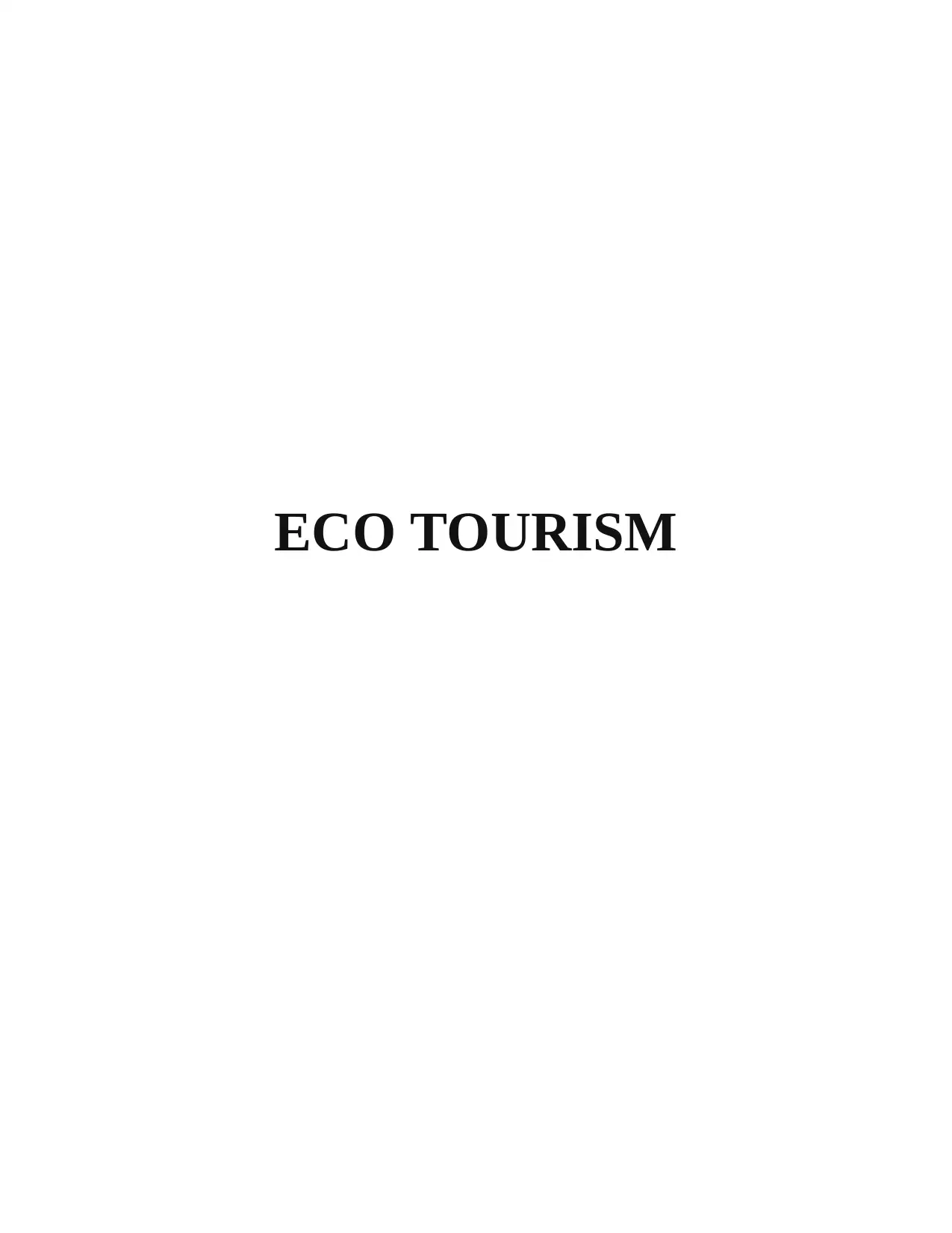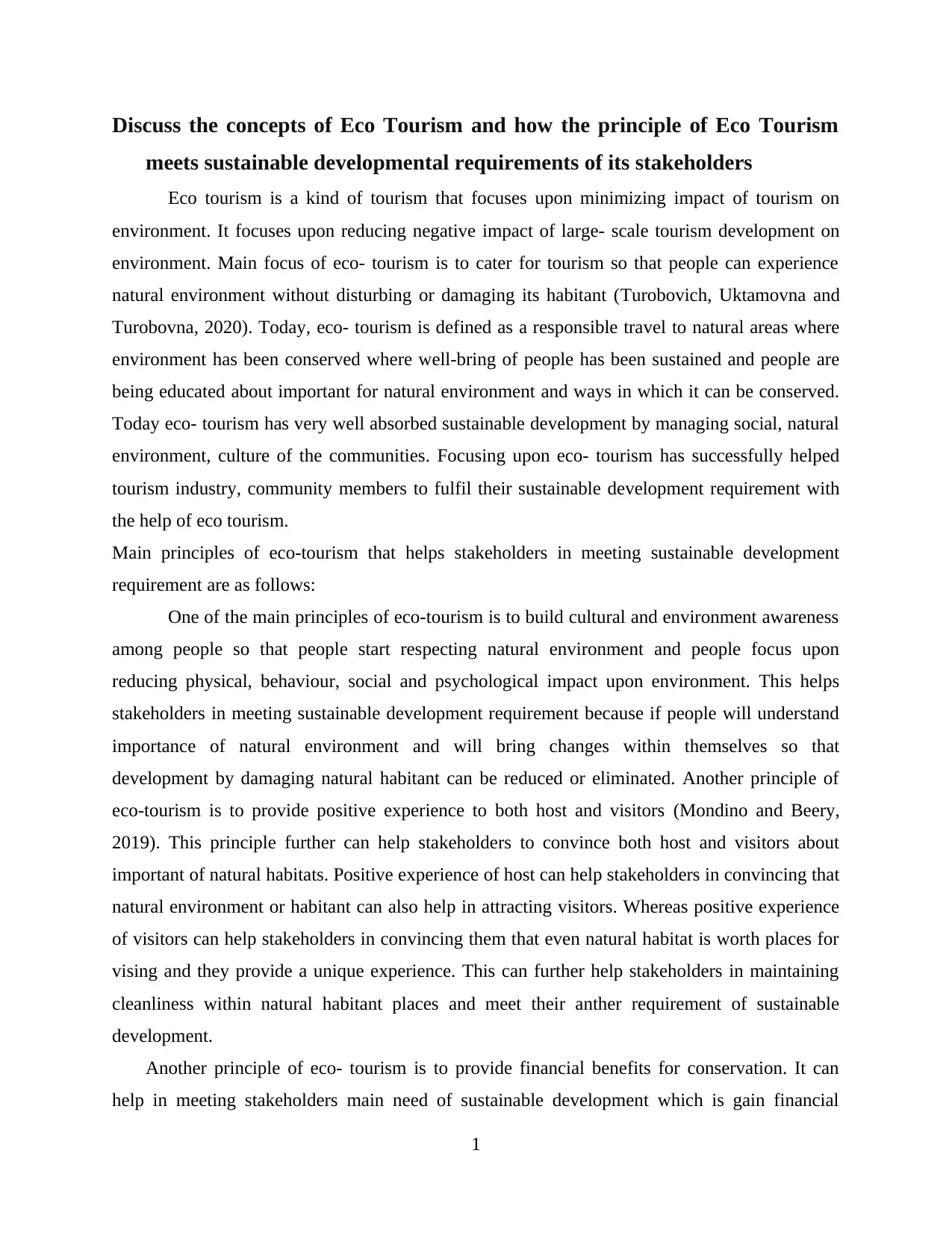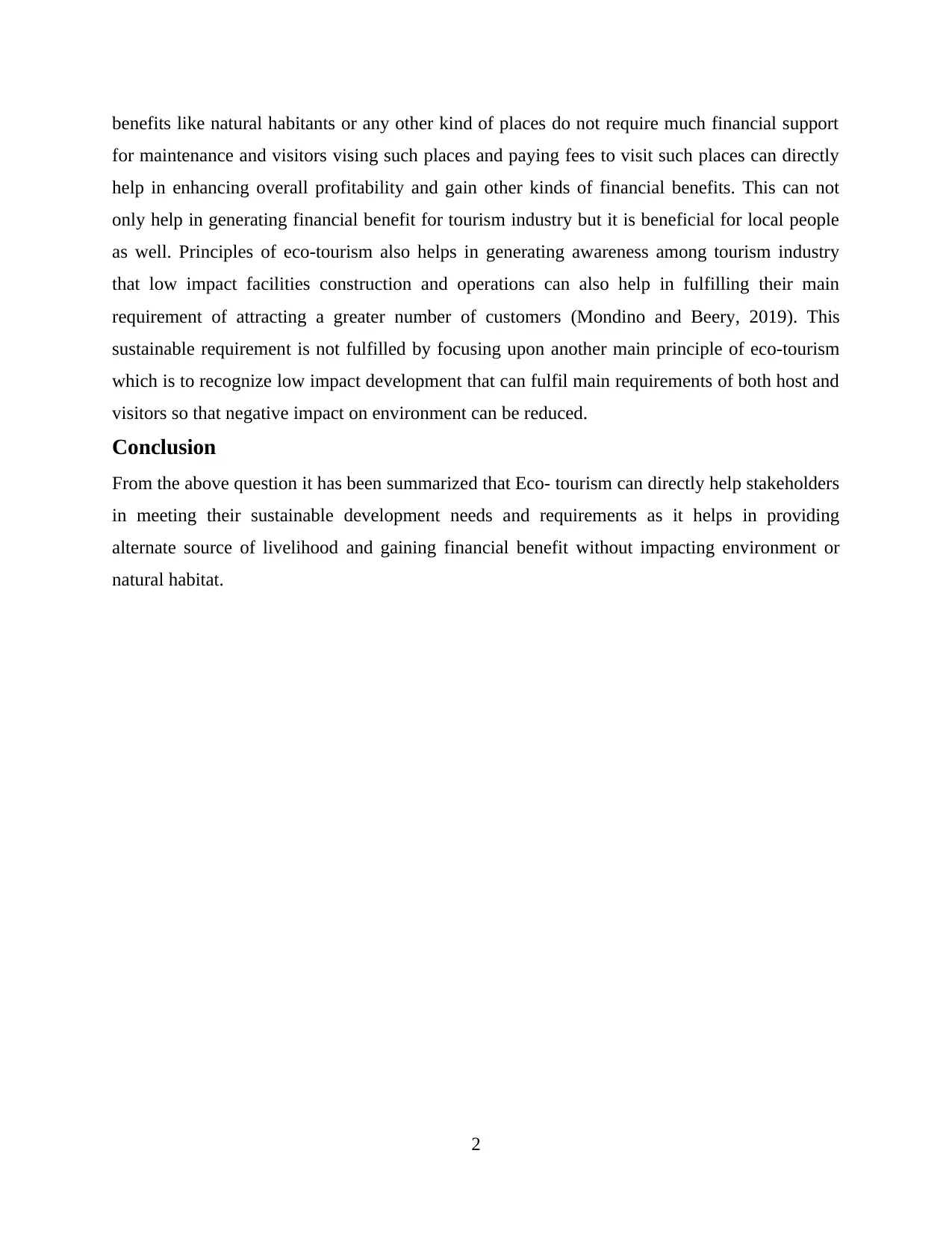ECO Tourism: Principles and Sustainable Development for Stakeholders
VerifiedAdded on 2022/12/30
|4
|674
|32
Essay
AI Summary
This essay provides a comprehensive overview of eco-tourism, defining it as a form of tourism that minimizes its environmental impact. It highlights the importance of reducing the negative effects of large-scale tourism, focusing on preserving natural habitats and educating people about environmental conservation. The essay delves into the core principles of eco-tourism, such as building cultural and environmental awareness, providing positive experiences for both hosts and visitors, offering financial benefits for conservation efforts, and promoting low-impact development. It explains how these principles contribute to meeting the sustainable development needs of stakeholders, including financial gains, environmental preservation, and alternative sources of livelihood. The essay references academic sources to support its arguments and concludes that eco-tourism is a vital approach for achieving sustainable development goals without harming the environment.
1 out of 4









![[object Object]](/_next/static/media/star-bottom.7253800d.svg)